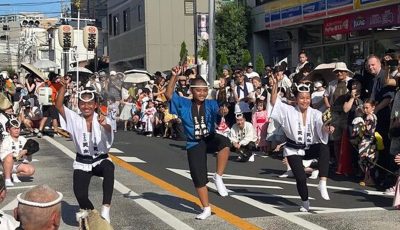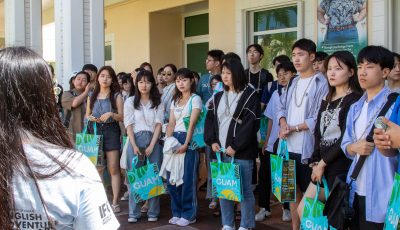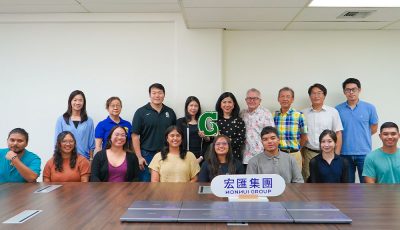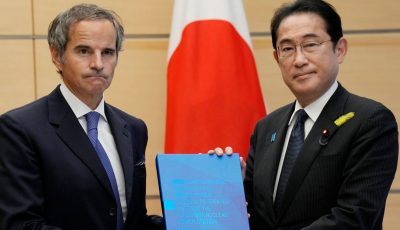Sol de Agosto
Sol de Septiembre is the name of a village an hour outside Santiago in Chile that I visited in the early ’80s. Augusto Pinochet had a tight grip on the nation’s helm, and his self-mythos was intruded into when Ferdinand Marcos withdrew an invitation for a stopover on his way from Fiji to China. Pinochet huffed back to Santiago just slightly ahead of my plane that landed from Brazil’s Rio in the early morn. My Philippine passport caused mirth at the gate and though Interpol detained me for four hours, no one seriously thought I posed a threat to Chile’s national security, let alone to the safety of El Primo!
Sol and Augusto, the latter spelled Pinoy-wise as Agosto in our title, is neither about the summer sun or El Dictador. It is to the unusually dry days of this season’s August in Manchuria that the sun manages to burn through the haze and clouds in the sky, scorching unprotected skins and leaving elder’s home gardens dry. The Yul Brynner look is the craze, though my barber enlightened me to the fact that there has been a mysterious increase in the loss of hair in the last 10 years, making the bald style a decent preference.
I asked my barber for a short summer hair; he understood it to be a short haircut rather than the short hair measure I meant, so I walked out of the shop with a nicely sculpted coif that might get girls’ shrill squeals were I performing on stage ala Mick Jagger of the Rolling Stones, or Paul McCartney of the Beatles, but alas, an itchy drape on the nape in the middle of the August sun was all it got me. So back to the barber seat I went the following day. My barber wondered, through a translator, why I would want to have my bush cut into short hair when there were many who did not have hair at all!
The length of hair, however, has nothing to do with the 120th year anniversary of the first Sino-Nippon war when the Qing Dynasty was humiliated by Meiji’s modernized navy, resulting in the loss of Taiwan and strategic locations including influence on the Koreas and its environs. The second war erupted when the famed Mukden (now known as Shenyang) incident of 1931 happened. A Japanese built railway station was mysteriously bombed and blamed on the nationalist forces of Chang Kai Shek who were at civil war against Mao’s communist forces. It started the second Sino-Nippon war. (This 120th anniversary is important in Chinese numerology as it is the tenth 12-year cycle in the calendar.)
Anyway, China has also been putting the heat on Japan; it convened this month an international academic conference to look at the legacy and learning from the two World Wars of which Japan prominently featured. Japan and England decided to divide the Pacific holdings of Germany after WWI, making the islands south of the equator under British Admiralty, and north, covered by Japan’s Navy. WWII pitted the two nations against each other as British and American forces denied Japan its access to needed oil through the Strait of Malacca, resulting in the fateful bombing of Pearl Harbor.
OK. So much for the historical notes. What has this got to do with the heat of the sun in mid-August?
Shinzu Abe, current Japanese PM is admirable in reviving the Japanese self-image so that it does not have to be apologetic to the world when its officials visit shrines highly regarded by the populace as seats of revered ancestors. Or kowtow to the Stars and Stripes each time it passes by. He is equally an aping pipsqueak in toeing the U.S. Navy line, particularly with the emergent presence of the Zhongguo navy in the China Sea.
The Potsdam Proclamation told Japan’s Imperial Meiji throne to relinquish holdings acquired during WWII. That changed swiftly when Mao established sovereignty along the lines that Chiang earlier submitted to the United Nations. Put simply, the U.S. did not like Mao. The U.S. Army militarized South Korea and contemplated nuking the land across the Yalu. It armed Chiang’s withdrawal from Nanjing to Taiwan, and prodded the British to oppose China’s inclusion of Xizang (Tibet) within Mao’s administration. Only Nixon with crazy Henry K as adviser were loony enough to practice their version of glasnost and perestroika a good decade before Gorbachev came into the scene.
The waters of the China Sea are boiling again, not because of the heat of August but because Obama need to cover his flanks after withdrawing U.S. forces from Iraq and Afghanistan. The Pentagon does not trust him and the military-industrial complex is evidently in place as even Obama’s promise to close Guantanamo’s detention center six years ago remains to be fulfilled. So he stirs the South China Sea waters.
China and America, however, diplomatically are on good terms. WalMart’s sales come from merchandise manufactured in China. But America could not be seen as anti-Chinese, with panda Xi Jinping as President and debonair PM Li Keqiang spouting his English, so we have to demonize someone. Guess who is now sporting horns?



























